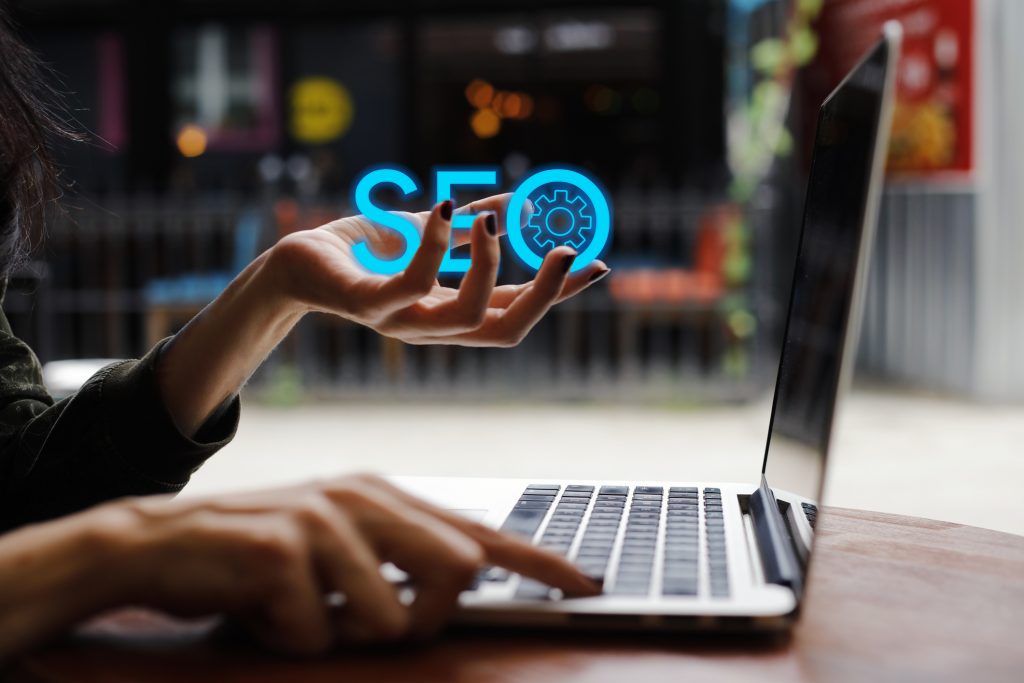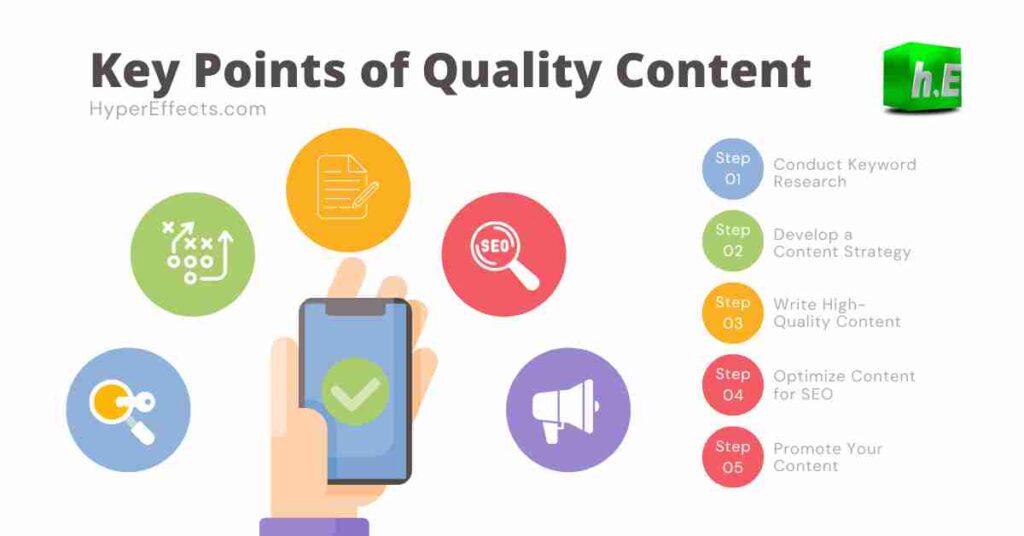Approximately 85% of Bainbridge Island Shoppers May Prefer Businesses with Websites: 7 Features Your Website Could Potentially Benefit From
In today's digital era, having an online presence for Bainbridge Island small businesses isn't just a luxury; it's a necessity. A staggering 85% of Bainbridge Island shoppers prefer businesses with websites, highlighting the critical role of Bainbridge Island small businesses websites. This trend underscores the need for a well-designed, functional website to capture and retain this tech-savvy audience. Let’s explore seven essential features that Bainbridge Island small businesses websites must have to attract and engage customers effectively.
Mobile Responsiveness: Why It Matters for Your Small Business Website

What is Mobile Responsiveness?
Mobile responsiveness means that your website automatically adjusts its layout, images, and text to fit any device—whether it's a smartphone, tablet, or computer. This makes your site easy to use no matter what device your customer is using.
Why Is It Important?
Today, more than 60% of people browsing the internet are doing so from their phones or tablets, not from a desktop computer. If your website doesn’t look good or is hard to navigate on a mobile device, people will quickly leave and likely visit a competitor whose site is easier to use.
How Does It Affect Your Sales?
Imagine someone trying to look up your business on their phone while they're out and about. If your site is hard to read, slow to load, or the buttons are too small to click, they might get frustrated and move on to a competitor. This means missed opportunities and lost sales for your business.
What Should You Do?
Make sure your website is mobile-friendly, meaning it works well on smartphones and tablets. A mobile-responsive design adjusts automatically to fit smaller screens, making it easy for customers to navigate, read, and interact with your site without any hassle. By doing this, you’re more likely to keep potential customers on your site, increasing your chances of making a sale.
If your website is easy to use on a phone, more people will stay on it, which means more sales and more customers for your business. Don't let a poorly designed website turn people away—make sure it works great on mobile devices!
Clear Contact Information: Make It Easy for Customers to Reach You

Why Is Clear Contact Information Important?
When customers visit your website, they often want to contact you to ask questions, get more information, or make a purchase. If they can’t easily find your phone number, email, or address, they might get frustrated and leave your site. This can mean losing a potential sale.
What Should You Include?
Make sure your website clearly displays your contact information in a place where it’s easy to find—usually at the top or bottom of each page. You should include:
- Phone Number: Let customers call you directly if they have questions or need help.
- Email Address: For those who prefer to send an email.
- Physical Address: If you have a physical location, let customers know where to find you.
Why It Matters for Mobile Users:
Many people browsing your site will be on their phones. Including a 'click-to-call' button—where they can simply tap to call you—makes it even easier for them to reach out without having to type in your number. This small feature can make a big difference in keeping potential customers engaged.
How Does This Affect Your Business?
If your contact details are hard to find or missing, customers might leave your site without buying anything or reaching out to you. By making it easy for them to contact you, you increase the chances of answering their questions, solving their problems, and ultimately making a sale.
Think of your contact information as a direct line to your customers. The easier it is for them to reach you, the more likely they are to buy from you. Make sure your phone number, email, and address are easy to find on your website, and consider adding a 'click-to-call' button for mobile users. This simple step can help turn visitors into customers!
Fast Load Times: Why Speed is Critical for Your Website

What Does "Load Time" Mean?
Load time is how long it takes for your website to fully appear on a visitor's screen after they click on it. If your website loads quickly, visitors can start browsing right away. If it takes too long, they might get impatient and leave.
Why Is Speed Important?
People are used to things happening fast online. Studies show that if a website takes more than three seconds to load, over half of the visitors will leave. This means if your site is slow, you could lose more than half of your potential customers before they even see what you have to offer.
How Does It Affect Your Business?
A slow website can hurt your business in two big ways:
- Losing Customers: If visitors leave because your site is too slow, they won’t buy from you, and they may never come back.
- Lower Search Rankings: Search engines like Google rank faster websites higher. If your site is slow, it might not show up on the first page of search results, making it harder for potential customers to find you.
How Can You Make Your Site Faster?
- Optimize Images: Large images can slow down your site. Compressing images makes them smaller without losing quality, helping your site load faster.
- Use Browser Caching: This allows parts of your site to be saved on a visitor’s device so that it loads faster the next time they visit.
- Content Delivery Networks (CDNs): CDNs store copies of your site on servers around the world, helping it load faster for visitors no matter where they are.
Think of your website as a storefront. If it takes too long to open the door, people might walk away. A fast-loading website keeps visitors happy, makes it easier for them to shop, and helps your business appear higher in search results. By speeding up your website, you keep potential customers on your site, giving you a better chance to make a sale.
SEO Optimization: Be Found or Be Forgotten

What is SEO?
SEO stands for Search Engine Optimization. It’s a set of practices that help your website show up in search results when people look for products or services like yours on search engines like Google. Think of SEO as the process of making your website more visible online so potential customers can find you.
Why Is SEO Important?
Imagine your website as a store. If it’s not optimized for SEO, it’s like having that store in the middle of a desert—no one will find it, no matter how great your products or services are. With effective SEO, your website becomes more visible, bringing in more visitors who are looking for exactly what you offer.
How Does SEO Work?
SEO involves several key steps:
- Keyword Optimization: This means including specific words or phrases in your website content that people are likely to search for. For example, if you own a bakery, you’d use keywords like “fresh bread in Bainbridge Island.”
- Meta Descriptions: These are short summaries of your web pages that appear in search results. A good meta description tells people what they’ll find on your page, encouraging them to click.
- Quality Content: High-quality, relevant content keeps visitors on your site longer and can make them more likely to buy from you. This can include blog posts, product descriptions, or how-to guides that answer your customers' questions.
Focus on Local SEO for Bainbridge Island Small Businesses:
For small businesses on Bainbridge Island, local SEO is especially important. This means optimizing your website to attract customers who are nearby and looking for your products or services. Local SEO includes things like adding your business location to your keywords (e.g., “coffee shop in Bainbridge Island”) and creating a Google My Business profile.
How Does This Help Your Business?
By using good SEO practices, your website will show up higher in search results when people look for businesses like yours. This makes it easier for potential customers to find you, increasing your chances of making a sale.
SEO is like putting up big, bright signs that guide people straight to your business. Without it, your website could be hidden away, making it hard for customers to find you. By focusing on SEO, especially local SEO, you can attract more visitors to your website who are ready to buy from your Bainbridge Island small business. This makes your website a powerful tool for driving business success.
User-Friendly Navigation: Simplify the Customer Journey

What is User-Friendly Navigation?
User-friendly navigation means having a website that’s easy for visitors to explore. It’s like having clear signs in a store that direct people exactly where they want to go. If your website is well-organized, visitors can easily find what they’re looking for without getting lost or frustrated.
Why Is This Important?
If a website is cluttered or confusing, visitors may leave quickly because they can’t find what they need. This means lost sales and missed opportunities for your business. On the other hand, if your site is easy to navigate, visitors are more likely to stay longer, explore more, and eventually make a purchase.
Key Elements of User-Friendly Navigation:
- Clear Navigation Menu: This is usually a bar at the top of your website that lists the main sections of your site, like “Home,” “Products,” “Services,” “Contact Us,” etc. It should be simple and straightforward so that visitors can easily find the information they need.
- Well-Structured Categories: Organize your content into logical categories. For example, if you run a clothing store, have separate sections for “Men’s Clothing,” “Women’s Clothing,” “Accessories,” etc. This helps visitors quickly locate the specific items they’re interested in.
- Clear Calls-to-Action (CTAs): These are buttons or links that guide visitors towards the next step, such as “Buy Now,” “Contact Us,” or “Learn More.” CTAs should be easy to spot and understand, leading visitors to take action.
- Logical Flow: Arrange your content in a way that makes sense to visitors. For example, if a customer lands on your homepage, they should be able to easily navigate to your products, learn more about your services, or contact you. The flow should feel natural, like a guided path.
How Does This Help Your Business?
When your website is easy to navigate, it creates a positive experience for visitors. They can find what they’re looking for quickly and without frustration, making them more likely to stay on your site, explore, and eventually make a purchase. This seamless journey from browsing to buying is what’s known as a “sales funnel,” and a user-friendly site helps guide customers through this process smoothly.
Think of your website as a well-organized store. If everything is clearly labeled and easy to find, customers are more likely to stay, explore, and buy. But if it’s messy and confusing, they’ll leave without making a purchase. By keeping your website’s navigation simple and intuitive, you make it easy for customers to find what they need, which boosts your chances of making a sale.
Trust Signals: Building Credibility and Confidence on Your Website

What Are Trust Signals?
Trust signals are elements on your website that show visitors your business is trustworthy, reliable, and professional. They are like badges of credibility that reassure customers they can trust you, your products, and your services.
Why Are Trust Signals Important?
When people shop online, they want to feel confident that their personal information, like credit card details, is safe and that they are buying from a reputable business. Without trust signals, visitors may hesitate to make a purchase because they aren’t sure if your business is legitimate or secure.
Key Trust Signals to Include:
- Customer Reviews and Testimonials: Displaying reviews or testimonials from satisfied customers shows new visitors that others have had a good experience with your business. This social proof helps build trust because people tend to believe the experiences of other customers.
- Secure Payment Options: Ensure your website has secure payment methods and displays security badges, like a padlock symbol or “HTTPS” in the web address. These signals show that customers' payment information is protected, which is crucial for gaining their trust.
- Industry Affiliations and Certifications: Displaying logos of professional organizations, industry certifications, or awards can boost your credibility. It tells visitors that you’re recognized by reputable groups in your industry, which can make them feel more confident in doing business with you.
- Professional Website Design: A clean, professional-looking website also acts as a trust signal. If your site looks outdated or poorly made, visitors might doubt the legitimacy of your business. A well-designed site with clear, easy-to-read information makes your business look more reliable.
How Does This Help Your Business?
Trust signals make visitors feel safe and confident when interacting with your website. This can lead to more sales because customers are more likely to buy from a business they trust. They also help build long-term relationships, as customers who trust your business are more likely to return and recommend you to others.
Trust signals are like the good reviews and security signs in a physical store. They reassure customers that your business is safe to shop with and that other people have had positive experiences. By including trust signals on your website, you make it easier for visitors to trust you, increasing the chances they’ll buy from you.
Compelling Content: Engage, Educate, and Convert Visitors into Customers

What is Compelling Content?
Compelling content is information on your website—like text, images, or videos—that captures your audience’s attention, answers their questions, and encourages them to take action, like making a purchase. It’s more than just words on a page; it’s content that speaks directly to what your customers need or want.
Why Is Content Important?
Good content is like a friendly salesperson who knows what your customers are looking for. It helps engage visitors, educate them about your products or services, and guide them toward making a purchase. Simply put, quality content can set your business apart from your competitors.
Types of Compelling Content:
- Blog Posts: These are articles on topics related to your business that provide valuable information to your customers. For example, if you own a gardening store, a blog post on “Easy Tips for Growing Tomatoes” can attract people interested in gardening, showcasing your expertise and encouraging them to buy your products.
- How-To Guides: Step-by-step guides help your audience solve a problem or learn something new. They show that you’re knowledgeable and willing to help, which builds trust and positions your business as an expert in your field.
- Videos: Videos are a powerful way to engage your audience because they’re easy to watch and can quickly convey a lot of information. A short video showing how to use your product can be more effective than a long written description.
Why Regular Updates Matter:
Keeping your content fresh and relevant is crucial. Regularly updating your website with new content not only keeps your audience engaged but also signals to search engines like Google that your site is active and up-to-date. This can help improve your search engine rankings, making it easier for potential customers to find you online.
How Does This Help Your Business?
Compelling content does more than just fill up space on your website—it helps attract new visitors, keeps them interested, and convinces them to take action, whether that’s buying a product, signing up for a newsletter, or contacting you for more information. It also helps build your reputation as a knowledgeable and trustworthy business.
Think of your website content as a tool to connect with your customers. High-quality, relevant content answers their questions, solves their problems, and shows them why they should choose your business. By regularly adding new content, like blogs, guides, or videos, you keep visitors engaged and help your business grow by turning more visitors into customers.
Why Bainbridge Island Small Businesses Can't Afford to Ignore Websites
Why Do You Need a Website?
Think of a website as your business’s online storefront. Just like a physical store, your website allows customers to see what you offer, learn more about your business, and decide whether they want to buy from you. If you don’t have a website, it’s like closing your doors to many potential customers.
What’s the Big Deal About Having a Website?
Shoppers on Bainbridge Island, like many people today, rely heavily on the internet to make decisions about where to shop, eat, or find services. They use search engines like Google to look up businesses, read reviews, and compare options. If your business isn’t online, those potential customers can’t find you, and you’re missing out on valuable sales opportunities.
How Does a Website Help Your Business?
- Visibility: A website makes your business visible to people searching online, allowing you to reach more customers than you ever could with just a physical store or word of mouth.
- Credibility: Many customers view businesses with websites as more credible and trustworthy. A professional-looking site can help establish your business as reliable and legitimate, making customers more likely to choose you over competitors who don’t have a website.
- Engagement: Your website gives you a platform to engage with customers by providing information, answering questions, and showcasing your products or services. This engagement helps build relationships and can lead to increased sales.
- Competitive Edge: In today’s market, not having a website puts you at a disadvantage. Your competitors who are online are already capturing the attention of your potential customers. A website gives you the chance to compete and even stand out.
It’s About More Than Just Being Seen
Having a website isn’t just about existing online—it’s about making a lasting impression. A well-designed, easy-to-navigate website helps create a positive experience for visitors, making them more likely to remember your business and come back again. It shows that you care about providing value to your customers, which can set you apart from competitors.
If your Bainbridge Island small business doesn’t have a website, you’re missing out on a huge opportunity to connect with customers who are searching online. A website makes your business visible, credible, and competitive, giving you a fighting chance to attract more customers and grow. In today’s digital world, having a website isn’t optional—it’s essential for success.
Real-World Success: How Bainbridge Island Businesses Have Thrived Online

A Real Example of Success
Let’s look at a real-life example of how a small business on Bainbridge Island used its website to boost sales. A local coffee shop decided to improve its website to make it easier for customers to interact with the business online.
What Changes Did They Make?
- Online Ordering: They added an online ordering system, so customers could easily order their favorite coffee or snacks directly from the website. This made it convenient for customers who were short on time or preferred not to wait in line.
- Clear Contact Details: They made sure their phone number, email, and location were easy to find on the website. This made it simple for customers to get in touch, ask questions, or find the coffee shop.
- Engaging Content: The coffee shop added interesting content, like blog posts about different coffee blends, behind-the-scenes videos, and stories about their journey. This content helped keep visitors on the site longer and made the business feel more personal and relatable.
The Results:
Within just three months of making these changes, the coffee shop saw a 35% increase in sales. Customers loved the convenience of being able to order online and appreciated how easy it was to find information. The improved website didn’t just attract more visitors—it turned those visitors into paying customers.
What Does This Mean for Your Business?
This example shows that a well-planned website can have a big impact on your business. By making it easy for customers to interact with your business online, you can increase sales and build stronger relationships with your audience. It’s not just about having a website; it’s about having a website that works for your customers and makes their experience better.
A local coffee shop on Bainbridge Island made a few simple changes to its website, like adding online ordering and clear contact information. These changes made it easier for customers to do business with them, leading to a significant increase in sales. This example highlights how powerful a well-designed website can be for any small business, including yours! It shows that investing in your online presence can pay off in a big way by attracting more customers and boosting sales.
The Future Is Digital: Position Your Business for Long-Term Success

Why Your Business Needs to Go Digital
Technology is constantly changing, and so are the ways people shop and interact with businesses. More and more customers are going online to find products, services, and information. If your business isn’t keeping up with these changes, you risk being left behind as customers choose competitors who have embraced the digital world.
Why Invest in a High-Quality Website?
A high-quality website is more than just a digital version of your business card. It’s a powerful tool that can help your business succeed in many ways:
- Meeting Customer Expectations: Today’s customers expect businesses to have a professional online presence. They want to find information quickly, make purchases easily, and feel confident that they’re dealing with a reputable company. A well-designed website helps you meet these expectations.
- Attracting More Customers: A good website makes it easier for people to find you online, learn about what you offer, and decide to buy from you. It’s like having a 24/7 salesperson who’s always available to help customers.
- Learning About Your Customers: Your website can provide valuable insights into how customers behave. For example, you can see which products they look at most, what questions they have, or what pages they leave quickly. This information can help you make improvements that better serve your customers.
How Does This Help Your Business?
By investing in your website, you’re setting your business up for long-term success. It’s not just about keeping up with technology—it’s about making your business stronger and more adaptable to changes in the market. A great website can help you attract new customers, keep existing ones happy, and continuously improve based on real data.
The world is moving online, and your business needs to move with it. A high-quality website isn’t just a nice-to-have; it’s an essential part of doing business today. It helps you meet customer expectations, attract more people, and learn how to improve your business. Don’t get left behind—make your website your business's strongest tool for success in the digital age.
Understand This: Your Website Is Your Best Salesperson
Why Your Website Matters
For small businesses on Bainbridge Island, having a website isn’t just about being online—it’s about driving your business forward. Think of your website as your best salesperson: it’s always working, always available, and can reach more people than you ever could in person.
Key Features That Make a Difference:
- Mobile Responsiveness: A mobile-friendly website ensures customers can easily browse and shop from their phones, which is how most people search online today.
- Clear Contact Information: Make it easy for customers to reach you with visible contact details, helping you build connections and close sales.
- Fast Load Times: A quick-loading website keeps visitors from leaving out of frustration, helping you keep potential customers on your site.
- SEO Optimization: Good SEO helps your business show up in search results, making it easier for customers to find you.
- User-Friendly Navigation: Simple, clear navigation helps visitors find what they’re looking for quickly, improving their experience and increasing the chances of making a sale.
- Trust Signals: Displaying customer reviews, secure payment options, and professional design elements build trust and encourage customers to buy.
- Compelling Content: High-quality content engages visitors, educates them about your products or services, and guides them toward making a purchase.
Tapping into the Digital Market:
With 85% of Bainbridge Island shoppers preferring businesses with websites, your business has a huge opportunity to capture this audience by having a strong online presence. By focusing on the key features mentioned above, your website can effectively attract new customers and retain existing ones, driving your business growth.
Your Next Steps:
Start your journey to digital success by optimizing your website with these essential features. By doing so, you position your Bainbridge Island small business to thrive in an increasingly digital world. Don’t wait—take action now and let your website become your business’s strongest tool for growth and long-term success.
